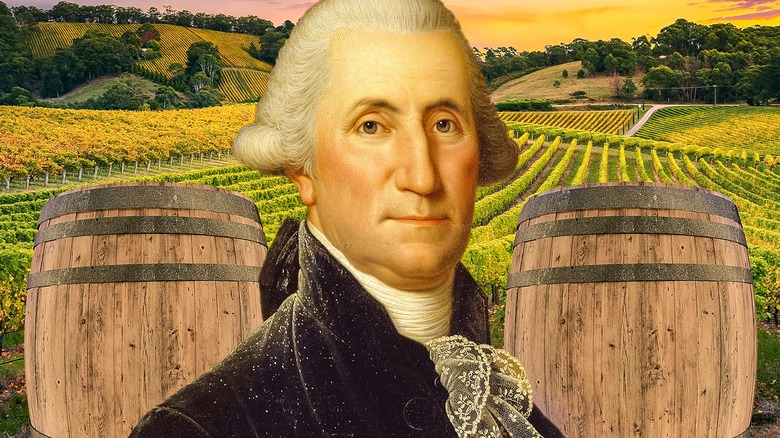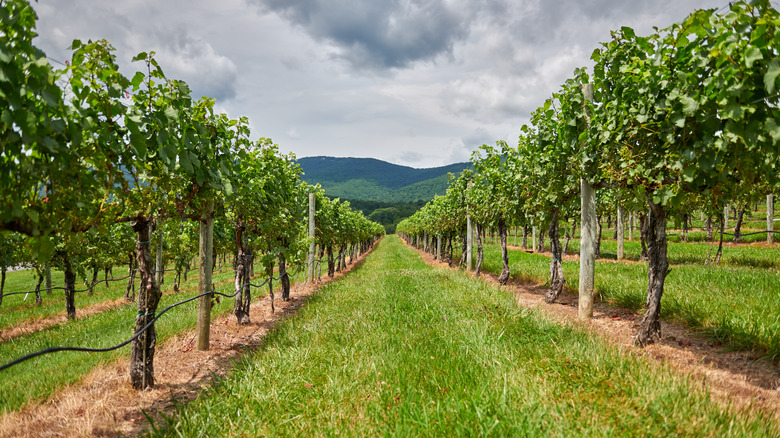The Historic Reason George Washington's Wine Ventures Failed
One would think someone as accomplished as George Washington would succeed in almost any endeavor, but even the first president of the United States faced unforeseen challenges. Take, for instance, Washington's attempt to produce wine at Mount Vernon. Just when the gentleman farmer from Virginia was ready to focus entirely on cultivating grapes native to North America to produce wine, the American Revolution put the kibosh on his plans.
Unlike his fellow Founding Fathers John Adams, Thomas Jefferson, and Benjamin Franklin, Washington never visited France, but he did have a taste for French Champagne and Burgundy. He was also partial to Madeira, a Portuguese fortified wine the Founding Fathers used to toast the signing of the Declaration of Independence. An 18th-century man of wealth and means, Washington likely had reasonably easy access to wines of the world. Still, constantly waiting for imports to arrive — trans-Atlantic sailing ships were the only means of transporting cargo back then — might lead one to consider local production.
In the spring of 1760, Washington drew up plans for a vineyard consisting of 55 cuttings from Madeira grape vines. The result was less than spectacular. He tried again a few years later, but his second attempt was equally unsuccessful. Not to be deterred, Washington focused his attention on locally grown grapes. While Virginia farmers of the era had successfully cultivated native varieties for eating, growing grapes suited for wine-making proved to be an elusive endeavor.
Albeit unsuccessful, Washington's wine endeavors were on the right track
George Washington soon instructed enslaved workers at Mount Vernon to plant a couple of thousand cuttings from local grapes. His plan was to observe the crop, learn, and adapt — but life got in the way. In 1775, Washington stepped up to serve as the commander-in-chief of the Continental Army, a valiant act that ultimately doomed the soon-to-be first president's venture into winemaking.
Sometime after Washington returned to Mount Vernon following the war — a full eight years later — he expressed his frustration to a colleague, writing, "Had I remained at home, I should 'ere this, have perfected the experiment which was all I had in view." Ultimately, Washington gave the venture a few more attempts, importing cuttings from Madeira (they died en route) and experimenting with grapes gifted to him by the family of Philadelphia botanist John Bartram, who is often cited as the father of American botany, before calling it quits.
That's not to say Washington was an inept farmer, however. The first president of the United States is remembered for coming up with forward-thinking solutions for improving and sustaining soil quality. He was also a successful wheat farmer and once owned and operated one of the largest distilleries in the United States. We can only guess that given enough time and resources Washington would have figured out what makes Virginia such a unique wine-growing region. Today, the state of Virginia is home to more than 300 wineries.

